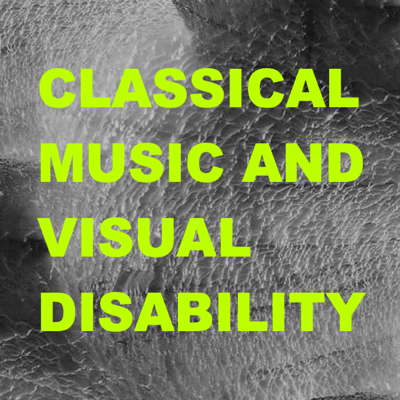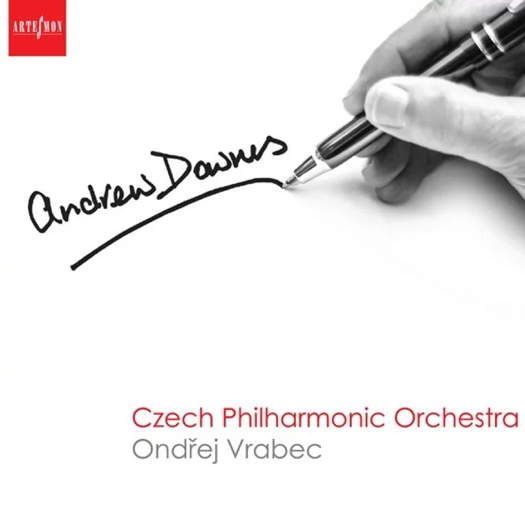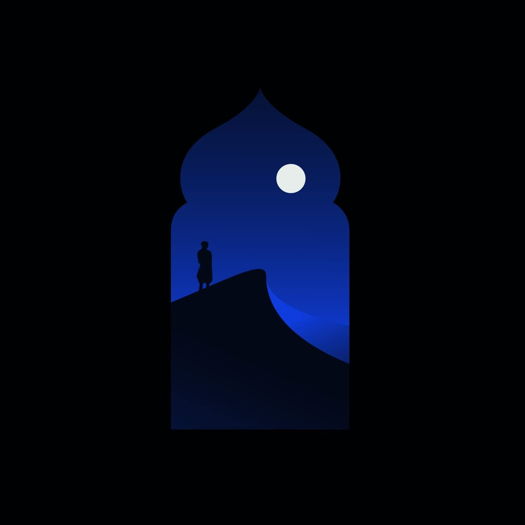- Salzburg Whitsun Festival
- Jürgen Ahrend
- Turina
- Enzo Dara
- Carbonelli
- John J Becker
- Carlos Gomes
- Levy Lorenzo
 PODCAST: John Dante Prevedini leads a discussion about Classical Music and Visual Disability, including contributions from Charlotte Hardwick, Robert McCarney, Halida Dinova and Giuseppe Pennisi.
PODCAST: John Dante Prevedini leads a discussion about Classical Music and Visual Disability, including contributions from Charlotte Hardwick, Robert McCarney, Halida Dinova and Giuseppe Pennisi.
 SPONSORED: CD Spotlight. On Buoyant Form - Orchestral music by Andrew Downes, heard by Roderic Dunnett.
SPONSORED: CD Spotlight. On Buoyant Form - Orchestral music by Andrew Downes, heard by Roderic Dunnett.
All sponsored features >>

A Scintillating Operatic Rarity
GERALD FENECH's discovery of the year is possibly Danish composer Horneman's opera 'Aladdin'
'... searing vocal performances, wonderfully supported by some exquisite playing of the highest order.'
Christian Frederik Emil Horneman was born on 17 December 1840 to a long line of artists and musicians, so it was natural for the young boy to take to music at an early age. He began composing when very young, and between 1858 and 1860 he studied at the Liepzig Conservatory where he befriended the famous Edvard Grieg. On his return home he established a music publishing house and later was co-founder of the music society 'Euterpe', committed to the promotion of new Nordic music. Later he went on to co-found the Concert Society, appearing as conductor, and establishing his own music institute. He died in Copenhagen, the city of his birth, on 8 June 1906, aged sixty-five.
Although Horneman largely earned his bread by teaching, he was always conscious of his real vocation: that of writing dramatic music. The opera Aladdin was his life's work, and he wrestled with it for some forty years, no matter what obstacles were placed in his way. It all started on his return from Liepzig when he decided to write an opera on the Aladdin story based on the original 'One Thousand and One Nights'. Benjamin Feddersen was entrusted with the task of providing the libretto - he duly obliged, and Horneman on his part composed an overture in 1864. This piece, after many changes, eventually became the overture to the opera itself.
Listen — Horneman: Overture (Aladdin)
(6200007 CD1 track 1, 0:01-0:55) ℗ 2022 Dacapo Records :
It was with this project in mind that the composer embarked to work steadily on his opera. By November 1867 he could report to Fedderson that everyone in Germany that he'd played the music to thought very highly of his work. On his return, despite both short and long interruptions, Horneman had succeeded in finishing his sketches by, most probably, 1869. Soon after he orchestrated the first two acts, then tragedy struck. His father died in May 1870, and a huge fire in his apartment in November 1872 left Horneman in a state of near despair. Naturally, these two blows delayed further progress on Aladdin, and it was only in 1883, after receiving a share of an annual grant, that composition started afresh.
The composer quickly orchestrated the last two acts and undertook several revisions, but the opera had to wait another five years to make its bow late in 1888. Preparations were chaotic and rehearsals did not go according to the composer's intentions, with the result that the performance was a great fiasco. Indeed, Aladdin could not be staged again for a considerable period of time, but despite all this adversity, many, including a number of critics, recognized its true worth. Horneman, though, did not lose heart. He prepared a piano score and sent it to several opera houses in Germany. To no avail. Up to this day, Aladdin has never been staged in this country.
After many deliberations and much effort, the revised version of the opera had its real premiere at the Royal Danish Theatre on 4 April 1902, and this time the success was huge. Indeed, there were eighteen performances to full houses, and the feeling was that Aladdin had finally arrived. But it was not to be. The last time the piece was performed at this venue was on 31 October 1903.
Aladdin survives in two different versions: 1888 and 1902, and it is the latter version that forms the basis of this historic recording. Although on practical grounds it was impossible to include all the changes in the orchestral parts, all of Horneman's later alterations have been included. This gives us the chance to hear all of the composer's final intensions for the first time.
Horneman was a real master of instrumentation and in Aladdin he showed his gifts in a score that is full of fantasy. He covers all angles of Aladdin's colour palette with supreme imaginative power, from the sombre beginning of the first Act and in the Cemetery Scene in the fourth, to the pompous celebratory music in Act III.
Listen — Horneman: Ballet (Aladdin Act III)
(6200007 CD3 track 8, 0:00-0:52) ℗ 2022 Dacapo Records :
The work involves a vocal ensemble with very demanding parts for the three central characters: Aladdin, Noureddin and Gulnare. This is especially so for Aladdin's lyric-dramatic tenor part, which places great demands on the singer who is the only soloist to appear in all four acts.
Listen — Horneman: No-one hears me shout (Aladdin Act I)
(6200007 CD1 track 9, 0:00-0:55) ℗ 2022 Dacapo Records :
The chorus too has a vital role and appears in many different guises: as elves and gnomes in the magic cave, as an unseen chorus which escorts the Genie of the Ring, as invisible spirits and genies in the churchyard and, finally, as Ispahan's Persians in the great scene around the Sultan's Palace.
Listen — Horneman: Our Sultan is dead! (Aladdin Act III)
(6200007 CD3 track 18, 5:01-5:56) ℗ 2022 Dacapo Records :
The opera has a certain Eastern flavour but Horneman is very cautious in applying it to his music, although the Third Act ballet and the Wedding Dance which follows may remind one of the ballet music in Verdi's Aida.
Michael Schønwandt keeps things moving briskly despite the length of the piece, and his infectious enthusiasm for Horneman's music allows him to showcase all of the composer's ability to orchestrate in a delightfully intricate yet transparent way. Phenomenal conducting of a harmonically rich and colourful score that was able to draw searing vocal performances, wonderfully supported by some exquisite playing of the highest order.
This is a scintillating operatic rarity in sumptuous sound quality and eyecatching presentation. My discovery of the year? Maybe it is.
Copyright © 21 May 2022
Gerald Fenech,
Gzira, Malta

CD INFORMATION - C F E HORNEMAN: ALADDIN
CHRISTIAN FREDERIK EMIL HORNEMAN
CLASSICAL MUSIC ARTICLES ABOUT DENMARK


